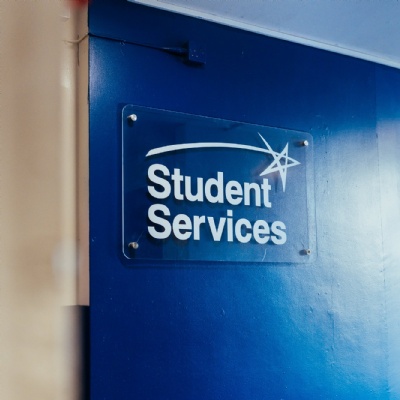Safeguarding is very important to us. Safeguarding in schools involves identifying and protecting children from abuse, neglect, and harm. It also involves ensuring that staff and volunteers are able to identify and raise concerns. Our Designated Safeguarding Lead (DSL) is an assistant principal who sits on the senior team, and we also have an operational lead and several DSLs besides. All our staff are trained annually, and they carry a lanyard with safeguarding information on them at all times. Our Single Central Record (CSR) is reviewed monthly, and our safeguarding procedures are reviewed annually in line with the Department for Education, Keeping Children Safe in Education and Prevent guidance.
- Our systems which support safeguarding, include the role of the designated safeguarding lead (DSL), the Behaviour Management Policy, and the safeguarding response to children who go missing from education.
- The early help process (known locally as the common assessment framework) and their role in it, including identifying emerging problems, liaising with the DSL, and sharing information with other professionals to support early identification and assessment
- The process for making referrals to local authority children’s social care and for statutory assessments that may follow a referral, including the role they might be expected to play
- What to do if they identify a safeguarding issue or a child tells them they are being abused or neglected, including specific issues such as FGM, and how to maintain an appropriate level of confidentiality while liaising with relevant professionals
- The signs of different types of abuse and neglect, as well as specific safeguarding issues, such as county lines, child criminal exploitation (CCE), child sexual exploitation (CSE), child criminal exploitation, child on child abuse, Female Genital Mutilation (FGM) and radicalisation.
If concerns are raised about the welfare or safety of a child, the designated safeguarding lead (DSL), or in an emergency situation, the individual member of staff, must give careful consideration to whether a referral needs to be made to children’s social care. If this course of action is taken, the College will usually inform parents, unless there are compelling reasons for not doing so.
Once a referral has been made, the college works closely with a range of relevant agencies in order to bring about the best outcome for the child.
If you have any safeguarding concerns, please do not hesitate to contact our Designated Safeguarding Lead (Strategic) or Designated Safeguarding Lead (Operational)l (details are below).
If you suspect or believe a child is suffering or is likely to suffer significant harm (including any form of mistreatment or abuse) you should AT ALL TIMES report your concerns.
If you are concerned about the welfare of a child, you can contact the Children's Duty Team of the Local Authority. if you know the postal address of the child, you should contact the local authority in which they live.
Rutland County Council - 01572 758407 or email dutyteam@rutland.gov.uk
Lincolnshire County Council - 01522 782111
You may decide to contact the NSPCC 0808 800 5000.
If you believe a child is in immediate danger, then don't delay and call the POLICE on 999.
Our safeguarding Team

Mrs Mindham
Assistant Principal
Designated Safeguarding Lead & SENCO

Mrs Anelli
Operational Designated Safeguarding lead
Deputy Designated Safeguarding Leads (DDSL) are:

Miss Hibbins
Assistant Principal

Ms D Mistry
Designated Teacher

Miss Brockbank
Re-Engament Officer





